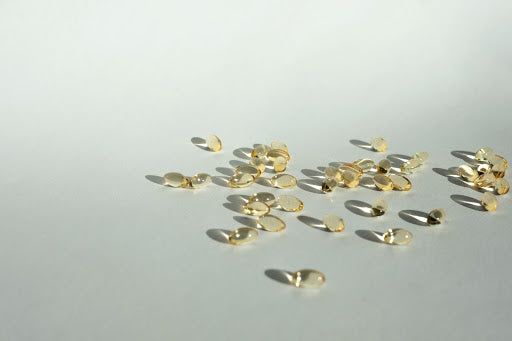Nutraceutical Products: Vitamin D3
* Verified by a US-based board-certified doctor.
Vitamin D3, also known as cholecalciferol, refers to the bioavailable and common form of vitamin D. You can get vitamin D3 from a few foods, but generally in small quantities. The most popular and common route to get sufficient vitamin D3 is directly from sunlight through the skin. Although this vitamin is essential proper body function, a large portion of people do not get sufficient amounts of Vitamin D3. Some of the most popular dietary sources of Vitamin D3 are sardines, shiitake mushrooms, eggs and fatty fish like tuna and salmon.
Benefits of Vitamin D3
1. Helps in boosting your mood
The human brain contains receptors that respond to vitamin D3. When vitamin D3 is in low supply, the body develops issues with mood because vitamin D3 is an essential nutrient that is required by the body to help in the manufacture of neurotransmitters. Neurotransmittersare chemical messengers that help with mood regulation.
SUMMARY
When vitamin D3 is in low supply, the body develops issues with mood.
2. Helps in Protecting the Heart
According to recent research, vitamin D3 is capable of regulating blood sugar levels . Body functions are interconnected. Over time, high blood glucose from diabetes can damage your blood vessels and the nerves that control your heart and blood vessels. The longer you have diabetes, the higher the chances that you will develop heart disease.
SUMMARY
Over time, high blood glucose from diabetes can damage your blood vessels and the nerves that control your heart and blood vessels.
3. Helps to Strengthen Bones
According to the Real Nutrition NYC founder, Amy Shapiro, vitamin D3 helps in phosphorus and calcium regulation that leads to strong and healthy bones. It is essential in bone formation and growth. However, deficiency in vitamin D3 can lead to increased risk of bone osteoporosis and fractures.
SUMMARY
Deficiency in vitamin D3 can lead to increased risk of bone osteoporosis and fractures.
4. Cancer Prevention
Previous medical research has linked vitamin D3 to the prevention of cancer especially breast, colon, and prostate cancer. The findings of the study make sense because vitamins D does help in cell growth regulation and can stall new blood vessels development within cancerous tissues.
SUMMARY
Vitamins D does help in cell growth regulation and can stall new blood vessels development within cancerous tissues.
5. Helps to Preserve Memory
When the vitamin D3 receptors found in the human brain fail to get enough D3, they can malfunction, increasing the risk of dementia. According to recent studies, cognitive impairment risk was approximately four times greater in people whose levels of vitamin D were below 25 ng/mL compared to their counterparts whose levels were at 75 ng/mL and above.
SUMMARY
When the vitamin D3 receptors found in the human brain fail to get enough D3, they can malfunction, increasing the risk of dementia.
6. Essential for Immune Health
Vitamin D3 is necessary for the immune system to be fit to fight pathogens like viruses and other types of germs. In the case that vitamin D3 levels are insufficient, one can easily fall sick and might not be in a position to fight infection properly.
SUMMARY
Vitamin D3 is necessary for the immune system to be fit to fight pathogens like viruses and other types of germs.
7. Soothes the stomach
Vitamin D3 plays a vital role in inflammatory processes and modulation in the gut. It explains why people suffering from inflammatory bowel diseases like Irritable Bowel Syndrome appear to have lower vitamin D3 levels. When vitamin D3 levels are low, it can lead to an increase in inflammation levels in the digestive tract. Increasing vitamin D3 intake can help reduce IBS symptoms.
SUMMARY
Vitamin D3 plays a vital role in inflammatory processes and modulation in the gut.
Do you want to do more with Supports stress management?








